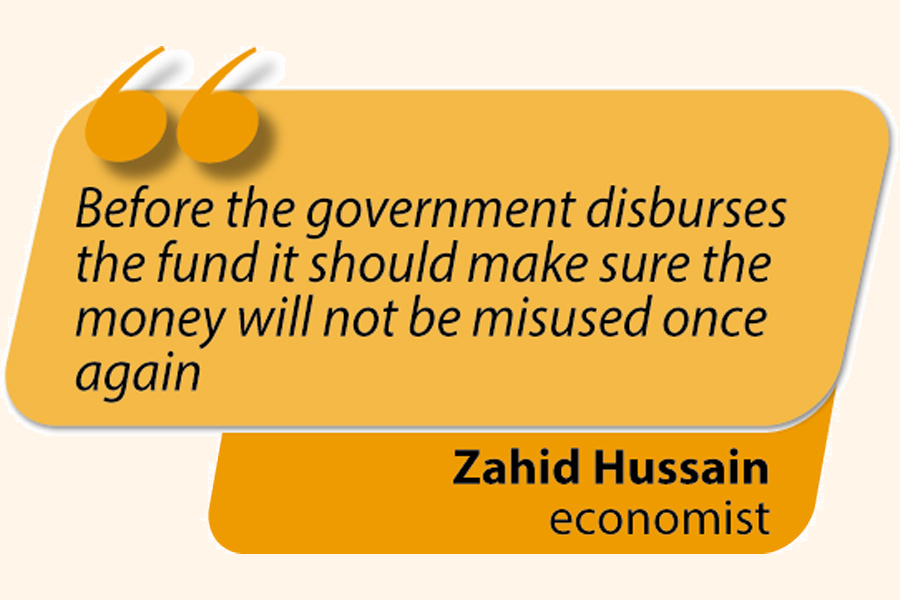A salvage package to keep ICB from sinking with others on its ship

Published :
Updated :

State-run Investment Corporation of Bangladesh (ICB) is forging a survival plan with the hope of receiving promised capital support from the government.
The biggest investment bank in the country, it had maintained a strong performance after listing in 1977 through 2011, the year it gained its highest annual profit of Tk 5 billion. Then its gradual decline began and reached an alarming juncture that it endured a loss as high as Tk 3 billion in the nine months through March of FY24.
The ICB through which the government has time and again strove to shore up the equity market needs to be salvaged. It has requested for a fund of Tk 50 billion to run its operations and recover from the damages done.
"We got a verbal assurance that we will get the money. Documentation is yet to be completed. We may finish the documentation part by this week," said Prof Suborna Barua, chairman of the ICB in a telephonic interview.
The ICB looks to get the money in soft loan at a 4 to 5 per cent interest rate.
Its revival is important for the stock market, depositors who have kept their savings with the much-trusted investment bank, and institutions that have lent money to it.
According to FY23 financial statements, the ICB has investments worth Tk 128 billion in stocks, debentures and corporate bonds, equivalent to more than 2 per cent of the total value of the present equity market. It is in fact the biggest investor of the market.
Moreover, it has Tk 89 billion in term deposits from general people, banks and other financial institutions.
The ICB has little chance of coming out of the woods without a low-cost fund from the government because its cost of fund climbed up to 12 per cent, which is very high compared to the industry (financial institutions) average of 7.5 per cent, according to the Bangladesh Bank, until January.
The state-run entity is expecting to bring down the cost of fund by clearing costly borrowings.
What drags ICB to current state?
Over the 14 years to 2023, the ICB lost what it had gained in 30 years since 1977.
Reminiscing his days at the ICB back in 1979, economist Dr. Zahid Hussain said, "ICB was a very disciplined and prestigious organisation." It has come down to where it is now due to "poor governance".
It has borrowed funds from unlikely sources and made wrong investment decisions.
For example, the investment bank made a capital investment of TK 0.85 billion on Padma Bank (former The Farmers' Bank) when it had already stirred controversy through loan scams.
Padma Bank is not in a situation to pay back the ICB and whether it will ever be able to make any repayment is uncertain.
The ICB also kept nearly Tk 1.9 billion as fixed deposit in the loss-making International Leasing & Financial Services. It is not getting any return from the fund either.
This is the backdrop to ICB's interest expenses growing at a faster pace every year between FY10 and FY23, compared to the growth of interest income.
Consequently, interest expenditure ballooned to nearly double the operating income by the end of FY23.
Now, high borrowing cost is the biggest concern.
"Over the time, ICB has supported the capital market, but the fund did not always come from the government," said Prof Barua.
In many cases, the investment bank has borrowed money at market rates.
As the interest rate has been increasing, Prof Barua said, "Our interest cost is rising every year. We had to revise the interest rate up in almost all the cases."
Currently, the ICB earns only from portfolio management. It has become impossible to bear the expenses with scanty income from the bearish stock market.
Meanwhile, the 18-month-long price restriction on stocks until January this year was a terrible blow to the ICB.
What's the recovery plan?
Once, ICB's average cost of fund was 7 per cent and now it is nearly 12 per cent.
If the Ministry of Finance finally agrees to give a support fund to the ICB, Prof Barua said it would cut high-cost borrowings to reduce the cost of fund to 7 or 8 per cent.
The remaining portion of the fund will be divided into two parts.
Some money will be stowed away for future use. "If there is any cash shortage or big opportunity, we will use that money," said the newly-appointed chairman.
And the other part will be injected into the capital market instantly.
However, economist Zahid Hussain, who served as lead economist in the macro, trade and investment global practice of the World Bank, argues against disbursement of the fund at the bank rate, at which the central bank lends money to its employees and refinances loan schemes.
"Before the government disburses the fund it should make sure the money will not be misused once again.
"There should be a proper action plan as to how the money will be spent."
farhan.fardaus@gmail.com


 For all latest news, follow The Financial Express Google News channel.
For all latest news, follow The Financial Express Google News channel.